The Water Diviner
 for war violence including some disturbing images.
for war violence including some disturbing images.
Reviewed by: Jeremy Landes
CONTRIBUTOR
| Moral Rating: | Offensive |
| Moviemaking Quality: |
|
| Primary Audience: | Adults |
| Genre: | War Drama |
| Length: | 1 hr. 51 min. |
| Year of Release: | 2014 |
| USA Release: |
April 24, 2015 (limited—300+) DVD: July 28, 2015 |
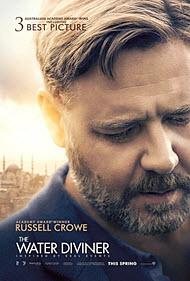


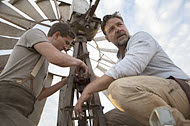
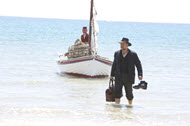
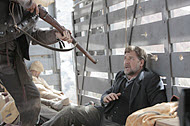
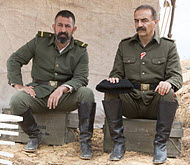

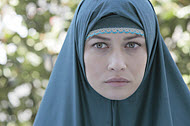
About war in the Bible
What is the Biblical perspective on war? Answer
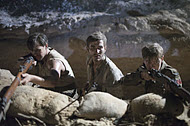
Gallipoli Campaign—devastating battle of Gallipoli in Turkey during World War I
ignorned by the film is the genocide slaughter of Armenian Christians, Jews and other “infidels” by Muslim Turks which was simultaneous with the Gallipoli battle
Is this movie unfairly pro-Muslim? Is Islam depicted in a more favorable light than it deserves?
love of family
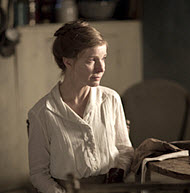
SUICIDE—What does the Bible say? Answer
If a Christian commits suicide, will they go to Heaven? Answer
being angry at God
Did God make the world the way it is now? What kind of world would you create? Answer
Why does God allow innocent people to suffer? Answer
What about the issue of suffering? Doesn’t this prove that there is no God and that we are on our own? Answer
Does God feel our pain? Answer
ORIGIN OF BAD—How did bad things come about? Answer
dangers of relying on feelings instead of truth and reason
dowsing / water diviners / divination
What is the Occult? Answer
THE OCCULT—What does the Bible say about it? Answer
| Featuring |
|---|
|
Russell Crowe … Joshua Connor Olga Kurylenko … Ayshe Isabel Lucas … Natalia Jai Courtney … Lt-Col Cyril Hughes Damon Herriman … Father McIntyre Jacqueline McKenzie … Eliza, Joshua Connor’s wife Ryan Corr … Art Cem Yilmaz … Cemal Megan Gale … Fatma Deniz Akdeniz … Imam Yilmaz Erdogan … Major Hasan See all » |
| Director |
|
Russell Crowe |
| Producer |
|
Fear of God Films Hopscotch Features See all » |
| Distributor |
Russell Crowe’s directorial debut is beautiful to look at, features some characters you care about, and it contains exciting battle and chase sequences. Yet, I found the film unbelievable in too many of its plot points, so the film ultimately felt manipulative and contrived.
Joshua Connor (Russell Crowe) has lost his entire family because of the battle at Gallipoli during WWI, which claimed tens of thousands of lives. His mission in the film is to journey from Australia to Turkey and locate the remains of his three young sons amidst the bones of thousands buried there four years before.
Because he seemingly has the ability to use sticks to determine where to dig and find water, he also seems to have enough clairvoyance to figure out the exact spot where his sons died agonizing deaths, which we view via flashback. Watching these young men suffer will live on in my memory as one of the most horrible depictions of war since Oliver Stone’s “Platoon.”
Mr. Connor moves from one lucky encounter to another, as he constantly receives the precise information he needs from minor characters to lead him toward his goal of bringing his sons home to be buried. Most plots have elements of chance in them that can move a story forward, but this movie asks us to accept that its lead character is either the luckiest man on Earth or is being led toward his destiny by visions, magnetic pulses, or other phenomena to achieve all his goals. After too many coincidences, this story, hinging upon the reality of a terrible war, becomes lost in a strange mysticism where, for instance, the pattern of coffee grounds determine whom you will marry.
If you go see “The Water Diviner,” you might have a good cry, seeing a father’s love for his sons and feeling the pain of their loss, but the movie doesn’t end up earning those tears.
If you go see the film, despite my schmaltz warning, you can expect to see plenty of people killing one another brutally in war, hear a little profanity, watch a wicked priest weasel money from a grieving man, see some buttocks as men swim at a beach, observe some prostitutes at work, and see a couple of suicides (essentially).
One might describe some of the most brutal scenes as “gut-wrenching.” In the early 1980s, Australian director Peter Weir made “Gallipoli” (1981), starring Mel Gibson, which dealt with this ferocious battle in a much more moving, realistic way that didn’t need tons of blood and guts to make you feel empathy for the plight of those doomed soldiers. I highly recommend that film over “The Water Diviner,” which wastes some good acting by mixing too much fantasy with historical facts to strange effect.
Violence: Heavy to extreme / Profanity: Moderate—“My G*d” (1), “Oh G*d” (1), “damn” (30), “hell” (2), “a**” (1), “a**-hole” (1), s-word (1), “slut,” “bloody,” “b*gger,” “b*stards” / Sex/Nudity: Moderate
See list of Relevant Issues—questions-and-answers.


There are no sexual scenes, not so much as a small kiss between Joshua and the female protagonist. There was a single scene where a woman, although fully dressed, was shown exiting a bathroom before or after (I can’t remember exactly) a man. She then crossed the hall and halfway went into another room, presumably hers. Before fully entering however, she turned around and looked at Joshua (who was sitting on a bench waiting for his turn to use the bathroom) and said something along the lines of “come back later,” although I cannot remember exact words. Nothing more was shown. and if you are anything like my mother, it may well fly over your head. See all »
Moral rating: Average / Moviemaking quality: 5
PLEASE share your observations and insights to be posted here.
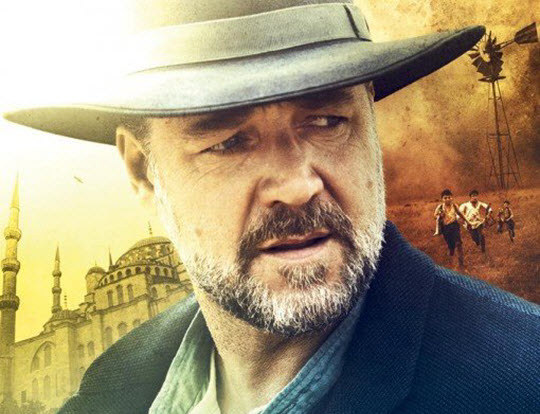

The nudity is so brief and so distant as to be hardly worth consideration. The battle violence is confronting, and so I would recommend this movie only for mature teenagers and older. What could be called “battle field euthanasia” is an aspect of war that is very rarely addressed, and one is left to decide whether this can ever be justified.
Some Christians might object to the practice of water divining (trying to find sources of underground water by holding metal rods or wooden sticks) as a form of sorcery. Personally, I think it has a scientific basis (supported by research by physicist Dr. Larry Marshall) and remember the valuable well found on our farm by a water diviner. Connor locating the site of his sons’ remains by a “sixth sense” may also be problematic for some Christians, but I think many of us parents have experienced knowing something about our children not immediately apparent to our senses, so I was not too disturbed by this.
I was disappointed that the only representative of the Church in this movie is a harsh and hypocritical clergyman. On the other hand, a mosque is depicted as a place of reverence and worship.
My Ratings: Moral rating: Better than Average / Moviemaking quality: 4